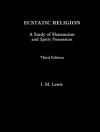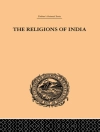From the days of Plato, the problem of the efficacy and adequacy of the written word as a vehicle of human communication has challenged mankind, yet the mystery of how best to achieve clarity and exactitude of written expression has never been solved. The most repercussive instance of this universal problem has been the exegesis of the law embodied in Hebrew scripture. Peshat and Derash is the first book to trace the Jewish interpretative enterprise from a historical perspective. Applying his vast knowledge of Rabbinic materials to the long history of Jewish exegesis of both Bible and Talmud, Halivni investigates the tension that has often existed between the plain sense of the divine text (peshat) and its creative, Rabbinic interpretations (derash). Halivni addresses the theological implications of the deviation of derash from peshat and explores the differences between the ideological extreme of the religious right, which denies that Judaism has a history, and the religious left, which claims that history is all that Judaism has. A comprehensive and critical narration of the history and repercussions of Rabbinic exegesis, this analysis will interest students of legal texts, hermeneutics, and scriptural traditions, as well as anyone involved in Jewish studies.
David Weiss Halivni
Peshat and Derash [PDF ebook]
Plain and Applied Meaning in Rabbinic Exegesis
Peshat and Derash [PDF ebook]
Plain and Applied Meaning in Rabbinic Exegesis
Acquista questo ebook e ricevine 1 in più GRATIS!
Lingua Inglese ● Formato PDF ● ISBN 9780195353938 ● Casa editrice Oxford University Press ● Pubblicato 1998 ● Scaricabile 6 volte ● Moneta EUR ● ID 2277477 ● Protezione dalla copia Adobe DRM
Richiede un lettore di ebook compatibile con DRM












